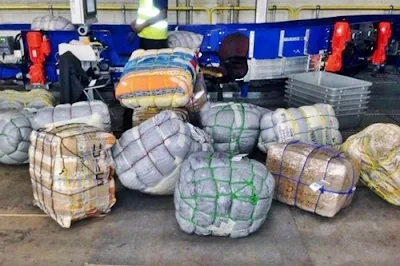Business owners and landlords must pay a five per cent value-added tax (VAT) starting January 2018, announced the Federal National Council (FNC) on Wednesday in the UAE capital.
The FNC approved the draft law, which serves as a legal framework and organises all the regulations of taxes, which aims to generate revenue for the federal government and enabling a sustainable economic growth.
Private businesses making Dh370,000 and more a year will have to pay VAT. The tax is binding on landlords renting out properties as well, which could mean a rise in rents for tenants across the UAE.
There are currently more than 450,000 private owned companies in the UAE, and the number is expected to soon reach 600,000, which will see a growth in the annual GDP, said Obaid Humaid Al Tayer, the Minister of State for Financial Affairs.
Last year, the GCC countries, including the UAE, Saudi Arabia, Qatar, Bahrain and Oman, signed an agreement to implement a VAT of five per cent.
Al Tayer said the law will be implemented in the UAE on January 1, 2018. However, all GCC members have until January 1, 2019, to implement the rule.
"VAT is the only law that is currently on the legislative committee, as well as the selective items tax on tobacco, fizzy drinks and energy drinks."
The minister said the effect of the VAT on people in general, including residents and consumers, will start with 1.3 percent and will drop with time, whereas businesses will face 0.06 percent, and 0.04 on gross domestic product (GDP) growth when implemented.The law will also provide the authority measures to address procedures for tax collectors, tax auditing, tax avoidance, violations and the penalties.
The passed draft law also stipulates that fines for those avoiding the pay their taxes should not exceed five times the value of the evaded tax.
The minister said that by 2021 the aim is to generate 80 per cent of UAE's economy by non-oil sectors, while the remaining 20 percent generated by oil, as opposed to the current 80 percent GDP.
Selective items tax
The GCC countries also agreed to introduce 'selective items tax', including on tobacco, soft drinks and energy drinks.
The cap for the 'selected items tax' is 100 per cent, in which Saudi Arabia has already drafted its law and placed a 100 percent tax on tobacco while placing 35 percent on soft drinks.
Although the UAE's Ministry of Finance has yet to confirm the amount of tax implemented on its selected items, Al Tayer said it is expected to be applied this year.
"The cap is 100 percent, it could be less depending on each country," said Al Tayer.
"Once the law is issued, it will say when it will be implemented," he added.
The revenue generated from tobacco products alone is expected to reach Dh2 billion a year.





